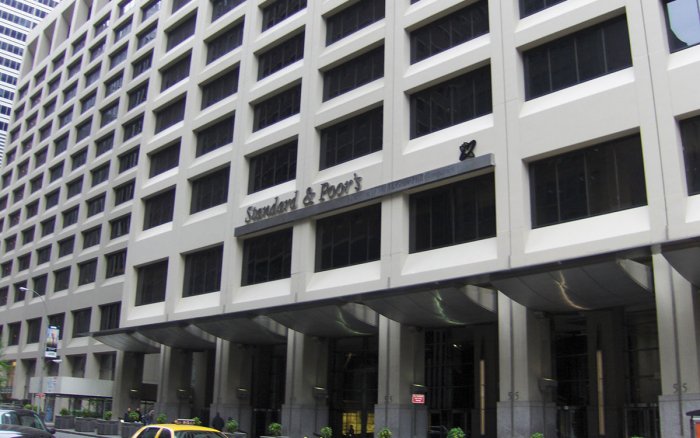Parliament Passes 2024 Budget Despite Many Uncertainties

Minister of Finance Mihály Varga at the final vote on the 2024 Central Budget Act at the extraordinary plenary session of Parliament on July 7. The legislation was approved by 121 votes to 44.
Photo by Zoltán Máthé / MTI.
The government majority has passed the country’s annual budget amidst widespread criticism from the political opposition and numerous doubts voiced by market analysts. The plans predict that 2024 will see a significant rebound from the depths of the current year; however, concerns abound that structural issues dragging over from 2023 will weigh heavily, and the government appears to have made its calculations through rose-tinted glasses, according to its critics.
Hungary’s economy will see a growth of 4%, with inflation moderating to a manageable 5-6% range, public debt dropping, and the budget gap (which crept close to 10% in the first quarter of 2023) narrowing, according to the assumptions contained in the country’s newly passed annual budget for 2024.
Minister of Finance Mihály Varga stated that the plan is focused on defense, both in terms of preemptive military spending as well as shoring up the economy. The priorities include contingencies to keep energy supplies secure and slashing inflation, which reached a 25-year high this year on the back of soaring fuel and food prices.
Next year will see a dynamic shift in the Hungarian economy, and the structure of expansion will also grow healthier, says Mariann Tripponn, the senior economist at CIB Bank. Nonetheless, she warned of the risks that stem from the spillover effects of 2023, for which she forecasts 0.5% growth, with downside risks on the table when asked by the Budapest Business Journal.
There is a broad range of different forecasts for 2023, as well as what may come next year. The Fidesz government led by Prime Minister Viktor Orbán expects growth of 1.5%, which is the top of the 0-1.5% forecast range published in the latest National Bank of Hungary (MNB) inflation report.
Although the MNB usually releases less broad forecasts, deputy governor Barnabás Virág said it is justified this time, given the spectrum of uncertainties, such as the war in Ukraine, energy supplies or any other global developments that could emerge. When prompted by the BBJ, he declined to take a position regarding which end of the forecast band he expects to materialize.
Amendments Expected
Politicians on the opposition side of the aisle are already critical of the government for its practice of drafting the oncoming year’s budget in the spring. Zoltán Vajda, the Socialist (MSzP) head of Parliament’s budgetary committee, said the 2024 plan, like those before it, would have to go through amendment after modification since the government’s calculations are entirely ungrounded.
Ferenc Dávid (DK), deputy head of the house economy committee, also claimed that all the figures contained in the plan are unfounded, reflect wishful thinking and provide no solid footing for participants of the economy to make any plans for even the immediate future.
There are many doubts regarding the balance planned for 2024. To highlight just two, there is still no agreement between the government and the European Commission on the release of some HUF 2 trillion in funding held back due to EU objections regarding Hungary’s adherence to the rule of law and a potential other HUF 2 tln in losses accrued by the MNB on high interest and a weak forint, which the state is required to cover by law.
The main issue for 2023, which is set to drag over to next year, is high inflation, with government and central bank measures enacted to halt the drastic rise in prices. PM Orbán explicitly stated earlier that despite high inflation causing major problems in several areas of the economy, the government would not introduce any measures to orient households into restricting their consumption.
The government instead introduced mandatory price regulation on staple food products, an approach that analysts and opposition politicians criticized when asked by the BBJ due to their distortive effects.
Surprise Correction
Despite the government’s approach, a correction came anyway, the extent of which, as Minister of Economic Development Márton Nagy admitted, surprised the government. The latest retail data from the Central Statistical Office (KSH) shows that turnover dropped 12.5% year-on-year in May, and there was also a month-on-month drop of 0.8%.
Nagy said the figures clearly show that households cut back in terms of the quantity of retail products they bought, and there is also a trend of quality downgrading, with many consumers opting for store-brand alternatives to what they would typically purchase.
The minister stressed that this is a problem for the central budget as well, given how the government is counting on household spending to compensate for the growth gap left by state stringency, cost-cuts and the postponement of several investments.
As such, the head of the Prime Minister’s Office Gergely Gulyás recently announced that Szép card allowances, which employers could give to their workforce as in-kind benefits, can now also be used in retail. They were originally restricted to the hospitality sector, essentially giving employees a cheaper way to go on a family holiday. Nagy conceded that this is a blow for hoteliers and restaurants, but for the time being, the priority has to be boosting household consumption to fuel growth and the state being able to collect the VAT it needs for its operation.
Gergely Suppan of MBH Bank is optimistic regarding the stabilization or even the rebound of food sales. He expects greater output from the agriculture sector, which is set to bring stabilization and possibly even a reduction in food prices in the second half of the year, and points to favorable terms in the runup to 2024. There are some vaguely encouraging signs that complement Suppan’s forecast. The latest inflation statistics from KSH show the rise in food prices slowed in June to 0.3%, and prices actually dropped 0.4% month-on-month.
This article was first published in the Budapest Business Journal print issue of July 14, 2023.
SUPPORT THE BUDAPEST BUSINESS JOURNAL
Producing journalism that is worthy of the name is a costly business. For 27 years, the publishers, editors and reporters of the Budapest Business Journal have striven to bring you business news that works, information that you can trust, that is factual, accurate and presented without fear or favor.
Newspaper organizations across the globe have struggled to find a business model that allows them to continue to excel, without compromising their ability to perform. Most recently, some have experimented with the idea of involving their most important stakeholders, their readers.
We would like to offer that same opportunity to our readers. We would like to invite you to help us deliver the quality business journalism you require. Hit our Support the BBJ button and you can choose the how much and how often you send us your contributions.











